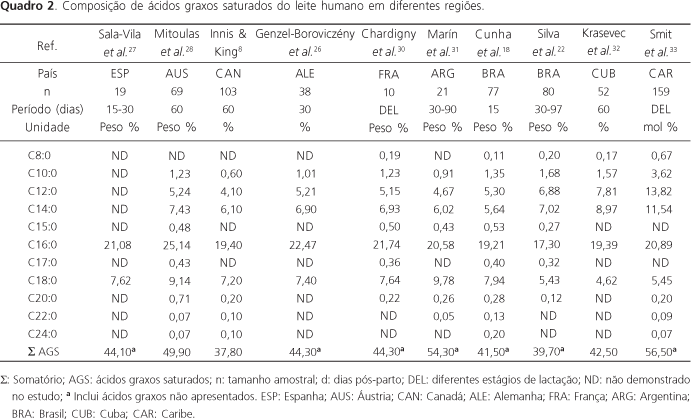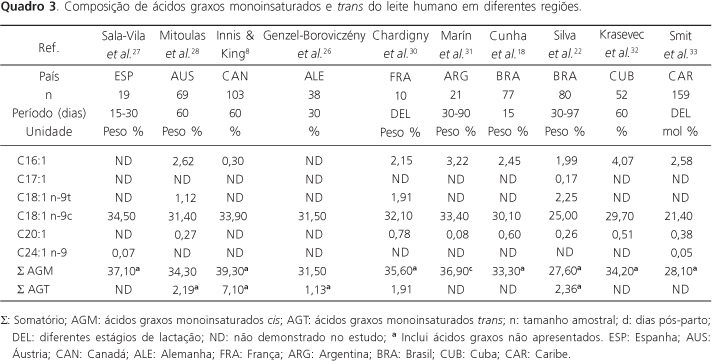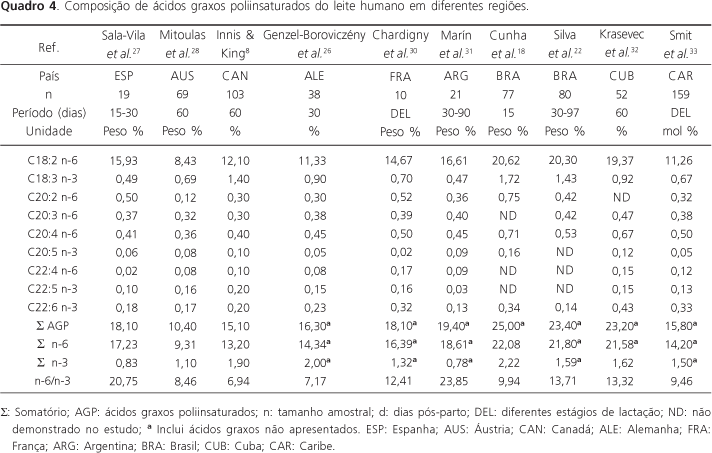Human milk is a complex fluid, considered a complete food and enough to meet the nutritional needs of an infant during the first six months of life. The lipid fraction of breastmilk is the newborn's main source of energy. It contains essential fatty acids and its polyunsaturated fats, such as arachidonic acid and docosahexaenoic acid, are essential for growth. Both the lipid content and the kind of fatty acids in human breastmilk can be modulated by factors inherent or not to the mother. Among these factors, adiposity, lifestyle, nutritional status and maternal food intake act in a concomitant and independent manner, making this modulation more difficult to analyze. Few differences have been observed between the fatty acid composition of human milk from studies carried out in Latin America and developed countries. Milk from some women from certain Brazilian regions has the essential fatty acids, arachidonic acid and docosahexaenoic acid, and a low percentage of saturated and trans fatty acids. Thus, the present study assessed the main factors that modulate the composition of human milk, in particular the differences in fatty acid composition among mothers of different nationalities, and the effects of these components on the newborn's health.
Fatty acid; Food consumption; Human milk; Lipids; Newborn





